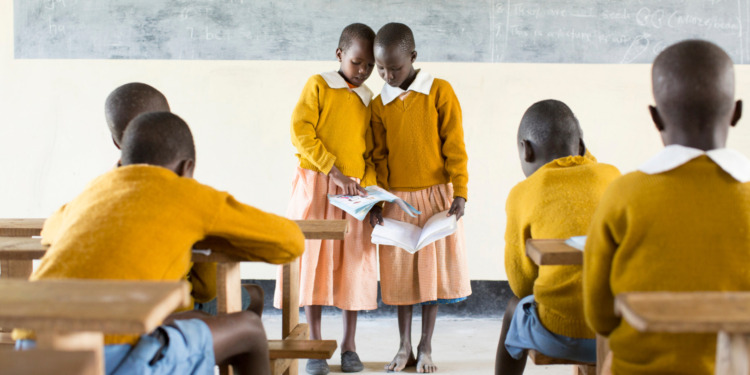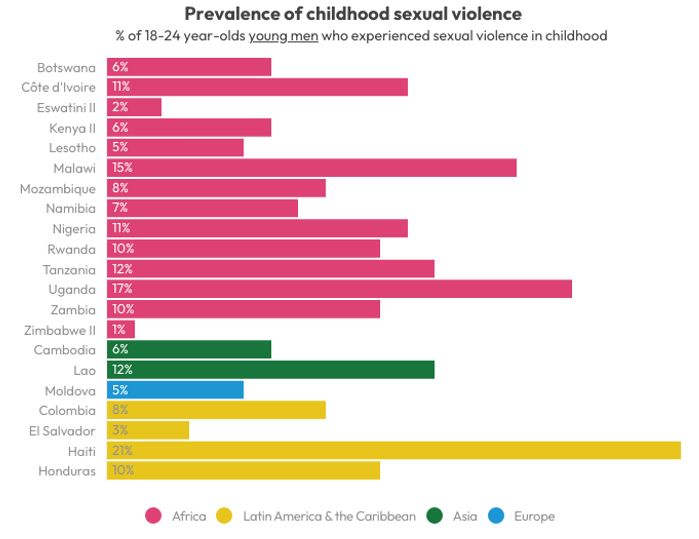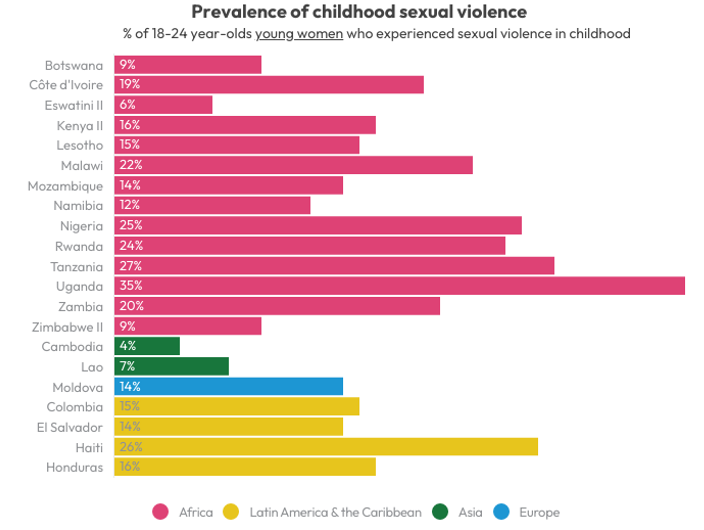We are more than halfway to the 2030 deadline for achieving the United Nations’ Sustainable Development Goals, but most African countries are struggling to make sufficient progress. Poverty, high unemployment rates, and inadequate and unequal access to education and healthcare across much of the continent reflect how far we are from reaching these targets.
But despite the scale of its development challenges, Africa has a chance to meet them by investing in its greatest resource: its young people.
The number of children 14 and under in Africa is increasing at unprecedented rates compared to every other region in the world. The continent is expected to experience an even bigger demographic expansion in the next 30 years, which makes this a pivotal time to invest in human capital to ensure that the next generation of African children can thrive.
Africa’s leaders are recognising this. Earlier this year, leaders from 43 countries signed the Dar es Salaam Declaration to mark their commitment to invest in their young people. However, despite the Declaration’s intent to invest in African youth, it does not mention one critical issue impacting its youngest inhabitants: a lack of safety.
While it explicitly commits to investing in education, health and gender equality, it fails to make the crucial link between improved outcomes in all these areas and the necessity for children to grow-up free from violence.
Currently, Africa is the region that scores lowest on the World Bank’s Human Capital Index. At the same time, Violence Against Children & Youth Surveys (VACS) conducted in ten African countries with support from Together for Girls shows that the continent has one of the highest levels of violence against children. This is not coincidental.
Child safety lies at the heart of progress in many areas of development. In education, studies have found that violence against children makes them more likely to drop out of school and less likely to achieve good learning outcomes.
Put simply, successful investment in young people requires investing to ensure their safety.
So it is encouraging that the second International Conference on Child Protection in Africa (ICCPAfrica) is taking place in Nairobi. The central theme, “Violence Against Children: From Evidence to Action” signifies a growing recognition in the region that child safety must be addressed.
One country spearheading efforts in using data and evidence to drive interventions which protect children is the host, Kenya.
In 2010, Kenya’s first Violence Against Children and Youth Survey revealed alarming levels of such violence. The prevalence of childhood sexual violence was 32% of females and 18% of males, with the prevalence of physical violence being even higher; 66% of females and 73% of males.
Equipped with this data, the Kenyan Government developed a National Action Plan for Violence Against Children (VAC). Then in 2019, Kenya conducted its second such survey. A decade on from the first one, it showed remarkable reductions in the prevalence of different forms of violence against children, especially sexual and physical violence.
The prevalence of sexual violence declined by half from 32% to 16% among females, and two-thirds from 18% to 6% among males. Physical violence also declined from 66% to 39% for females and 73% to 52% for males.
These reductions in Kenya are a prime example of the power of data to shed light on this issue and help design and implement interventions to address it. Understanding the drivers of violence against children is the first step towards putting an end to it.
Related Articles: Headed for 10 billion People in the World: What Happens Then? | The Unprecedented Potential of Africa’s Future Generations | Africa’s Agribusiness Sector to Reach US$1 Trillion by 2030: What Role Does the Youth Play? | It Takes a Village to End Child Marriage | Invest in Young Women for the Future of Africa’s Public Leadership
The next step is to identify the specific factors that contribute to reductions, so they can be replicated elsewhere. For exactly this reason, Together for Girls supported our Kenyan partners LVCT Health to explore them.
Launched this week at ICCPAfrica, this groundbreaking study charts what has worked so well in Kenya.
Its findings reflect the crucial role that the introduction of new legal and policy frameworks and the strengthening of existing ones played. The 2010 National Children’s Policy proved critical in protecting and upholding children’s rights, as well as monitoring and evaluation criteria for implementing related policies and programmes.
The National School Safety Framework 2014-2016 was a key policy by the Kenyan Ministry of Education to address school-related violence and ensure the safety of students.
And the amendment of the Sexual Offences Act (SOA) in 2016 proved pivotal in addressing the prevalence of sexual violence against children across sectors. Within the healthcare sector, for example, it improved access to services for survivors of violence, and provided specialised training for healthcare professionals to care for them.
Another noticeable impact has been on Kenya’s law enforcement and judicial system. Child protection units and gender desks were introduced in police stations, which in turn contributed to a more child-friendly and gender-sensitive approach to adressing cases of sexual violence.
Improved coordination and collaboration of violence against children services, increased funding for prevention programs, strengthened data collection and better reporting systems are all revealed as crucial in the reduction of violence against children.
To be clear, challenges remain in Kenya. Some forms of violence, such as the prevalence of unwanted sexual activities among adolescent girls (13 to 17 years old) remain considerably higher than other indicators.
But the data shows change is possible and violence against children is preventable. And this new report does even more — by identifying the factors behind Kenya’s success.
ICCPAfrica aims to showcase “emerging good practices as supporting data to inform changes in programs, policies, and legislation that are in the best interests of children in Africa.”
From Kenya we now have clear evidence of what works.
For a continent committed to investing in its children, prioritizing such proven interventions is essential. Then it truly can ensure that its greatest ever asset — Africa’s next generation of invaluable human capital — can thrive.
Editor’s Note: The opinions expressed here by the authors are their own, not those of Impakter.com — Featured Photo Credit: Together for Girls.












